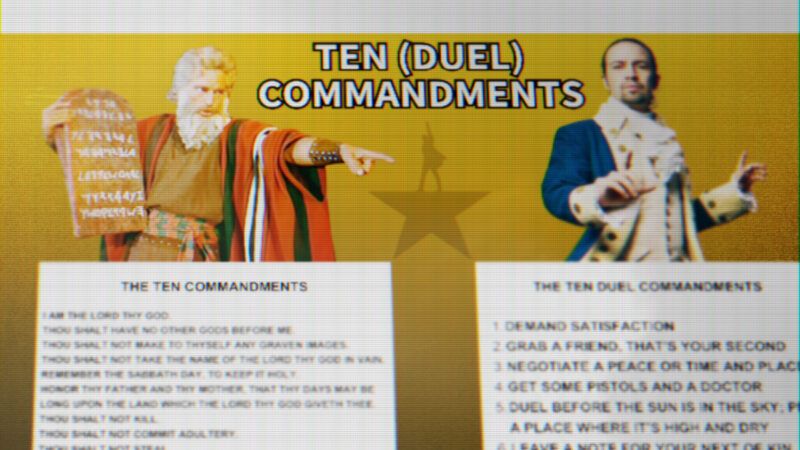Federal Judge Blocks Law Mandating Ten Commandments Displays in Louisiana Classrooms
The law "is not neutral toward religion," wrote Judge John W. deGravelles, who ruled that the law was "facially unconstitutional."

A Louisiana law mandating that public school classrooms display posters of the Ten Commandments has been halted by a federal judge, who ruled that the law is "facially unconstitutional."
The law, H.B. 71, was signed in June. It requires public school classrooms—regardless of grade level or subject matter—to display large posters of the document at least 11 inches by 14 inches and in a "large, easily readable font." Supporters of the law argued that it didn't violate the Establishment Clause of the First Amendment, claiming that the displays were intended to educate students on the historical impact of the Ten Commandments, rather than religiously indoctrinate them. The law also banned taxpayer funds from going to support the posters, instead requiring schools to accept donations.
The law was almost immediately met with a legal challenge from parents who claimed that the mandate violated their ability to instill their preferred religious values in their children.
The law "unconstitutionally pressures students into religious observance, veneration, and adoption of the state's favored religious scripture," reads the suit, filed in June. "It also sends the harmful and religiously divisive message that students who do not subscribe to the Ten Commandments—or, more precisely, to the specific version of the Ten Commandments that H.B. 71 requires schools to display—do not belong in their own school community and should refrain from expressing any faith practices or beliefs that are not aligned with the state's religious preferences."
On Tuesday, Louisiana federal judge John W. deGravelles granted a preliminary injunction on the law, writing that H.B. 71 "is not neutral toward religion, and this is evident from the text of the statute, its effects, and the statements of lawmakers before and after the Act's passage.
"Since the law is not neutral," deGravelles continued, "it easily fails strict scrutiny analysis; even assuming AG Defendants had established a compelling interest (e.g., for education or history), there are any number of ways that they could advance an alleged interest in educating students about the Ten Commandments that would be less burdensome on the First Amendment than the one required by" the law.
The ruling was met with immediate praise from those who challenged it as an unconstitutional overreach of religious instruction into state-run schools.
"This ruling should serve as a reality check for Louisiana lawmakers who want to use public schools to convert children to their preferred brand of Christianity," said Heather L. Weaver, Senior Staff Attorney for the ACLU's Program on Freedom of Religion and Belief said in a Tuesday statement. "Public schools are not Sunday schools, and today's decision ensures that our clients' classrooms will remain spaces where all students, regardless of their faith, feel welcomed."


Show Comments (24)